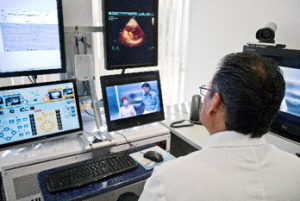You were just laid off… options other than COBRA can save you money.
Most employers offer continuing insurance coverage where you can temporarily continue your health insurance coverage through a federal law known as COBRA.
Congress passed the Consolidated Omnibus Reconciliation Act (COBRA) two decades ago to give families an insurance safety net. Before then, people who lost health insurance at work often had trouble qualifying for coverage when they tried to buy it on their own. They would get turned down or face exorbitant premiums if they had pre-existing health conditions.
So what does that really mean? When your employer provides health insurance benefits, they typically pay 50% and you pay 50% of the monthly premium. If you choose COBRA, you will be paying the employer’s portion (50%) and your portion (50%) plus a 2% administrative fee.
Purchasing your own health insurance can save you money. Look at these examples where one spouse was laid off. (Neither of these couples qualify for an Affordable Care Act subsidy. Affordable Care Act Plan premiums would be very similar to COBRA.)
A family of four with a couple in their 40s and two children
- COBRA monthly premium is $1442
- Extended 36 month short term plan monthly premium of $738
A married couple in their mid 50s:
- COBRA monthly premium is $1701
- Extended 36 month short term plan monthly premium of $830
You have choices…contact me for a free comparison!
 It doesn’t cost as much as you may think. There are different opinions about COVID-19 and the health impact on our country. However, one thing is certain. If you became infected and hospitalized, the cost of your care would exponentially outweigh the cost of your monthly premium and the right health insurance plan. There are many reasonably priced options and plan durations to choose from.
It doesn’t cost as much as you may think. There are different opinions about COVID-19 and the health impact on our country. However, one thing is certain. If you became infected and hospitalized, the cost of your care would exponentially outweigh the cost of your monthly premium and the right health insurance plan. There are many reasonably priced options and plan durations to choose from. Today, many people are self employed, losing their employer benefits or finding their employer benefits too expensive along with higher deductibles and decreasing benefits.
Today, many people are self employed, losing their employer benefits or finding their employer benefits too expensive along with higher deductibles and decreasing benefits. Why go to the doctor when the doctor can come to you? There is a new Health Discount program that provides unlimited access to telemedicine video conferencing with board certified physicians who can diagnose and prescribe medication any time of the day and any day of the week. Additional program benefits include prescription discounts, alternative health and wellness discounts, medical bill negotiation, expert medical review, telephonic counseling and health advocates.
Why go to the doctor when the doctor can come to you? There is a new Health Discount program that provides unlimited access to telemedicine video conferencing with board certified physicians who can diagnose and prescribe medication any time of the day and any day of the week. Additional program benefits include prescription discounts, alternative health and wellness discounts, medical bill negotiation, expert medical review, telephonic counseling and health advocates. “Cash is King” as the saying goes…especially on certain medical services. If you choose to have a high deductible to save on your monthly premium, it may make financial sense to pay cash for diagnostic testing, blood work and even outpatient surgery. There are websites that can help you find the lowest cash prices.
“Cash is King” as the saying goes…especially on certain medical services. If you choose to have a high deductible to save on your monthly premium, it may make financial sense to pay cash for diagnostic testing, blood work and even outpatient surgery. There are websites that can help you find the lowest cash prices. 